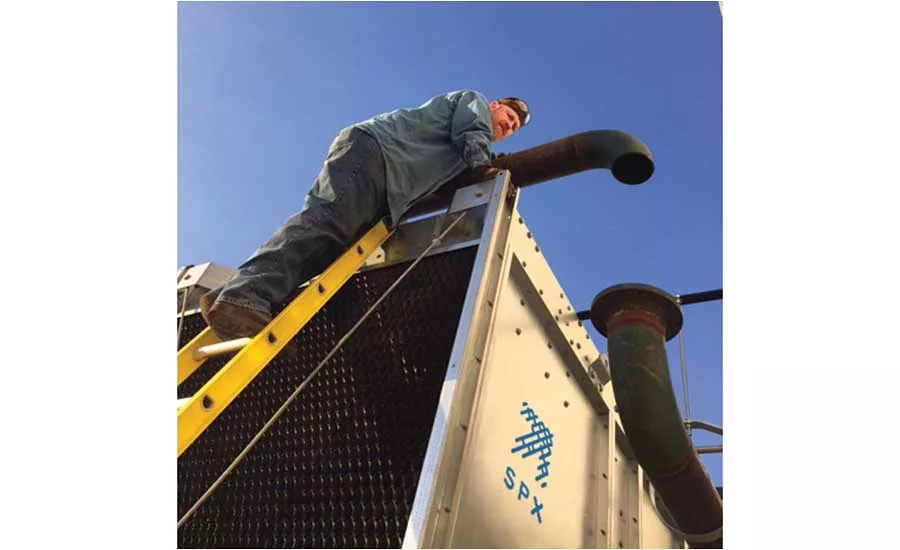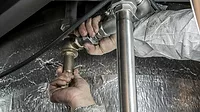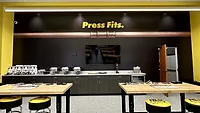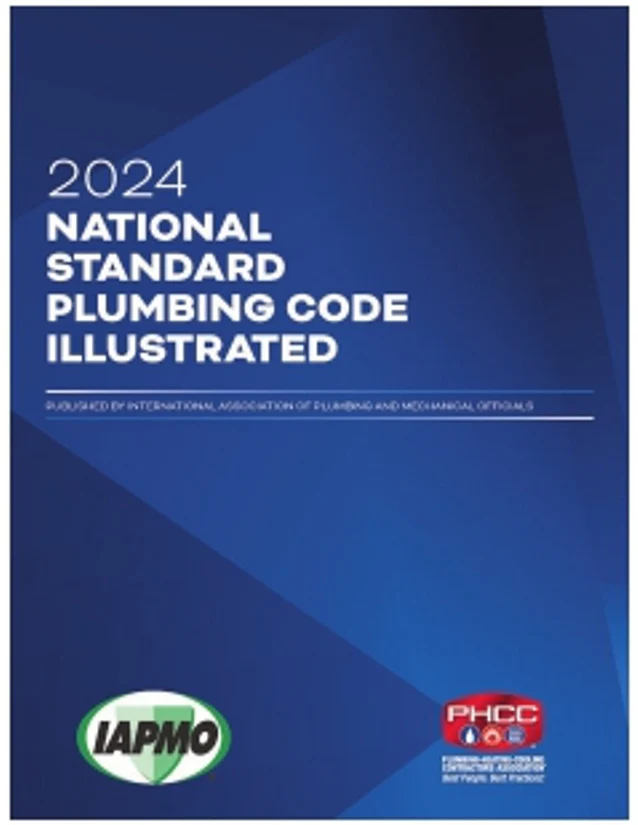Donations give apprentices hands-on training opportunities
Steamfitters UA Local 602 Mechanical Trades School recently expanded and renovated its training facilities.

The Marley NC, provided by SPX Cooling Technologies and Cummins-Wagner, is also being used to cool newly designed classrooms for interactive learning. Photo credit: SPX Cooling

Students and instructors install a Marley NC cooling tower that serves as the centerpiece for learning start-up, maintenance and troubleshooting. Photo credit: SPX Cooling

The Steamfitters UA Local 602 Mechanical Trades School benefits from equipment donations for hands-on training in its apprenticeship program. Photo credit: SPX Cooling
Steamfitters UA Local 602 Mechanical Trades School recently expanded and renovated its training facilities. The union, which represents journeymen, apprentices and helpers working in the heating, air conditioning, refrigeration and process piping industries, sought equipment donations to outfit the school and help with its apprenticeship training mission.
The school, which has training centers in Landover, Md., and Springfield, Va., offers a five-year apprenticeship and trains a diverse group of more than 700 students ages 19 to 70.
Improving training spaces
When the Steamfitters UA Local 602 Mechanical Trades School needed equipment to use in its apprenticeship program, a major industrial and mechanical equipment distributor fulfilled the entire wish list through manufacturer donations.
The equipment, including a Marley NC cooling tower donated by SPX Cooling Technologies, enables the school to present students with a real-world environment. Instructors use the complete new cooling system to teach students how to troubleshoot and fix problems with HVAC systems.
Apprentices are assigned to a union contractor and jobsite, and generally work 40 hours per week. Classes range from soldering and brazing, health and safety, and drawing and blueprint reading to basic and advanced refrigeration and electricity.
Assistant Training Director James Balderson explains that the nonprofit school has a very small equipment budget, so he has to think creatively to beef up the equipment available for HVAC training. Balderson is the coordinator for the school’s HVAC department, and trains air conditioning, refrigeration and boiler technicians.
“Being able to expose our students to real equipment gives us a greater advantage compared to teaching out of a book,” Balderson says. “Classroom time is necessary, but we must reinforce it with hands-on training.”
Balderson notes that he and other instructors regularly ask vendors if they know anyone discarding equipment.
“If they are going to replace equipment and it’s still usable, we’ll arrange to come get it. Hands-on knowledge is the most important part of the steamfitter’s trade, so the ability to have access to real equipment to solve real-time problems is essential in the industry.”
He developed a long equipment wish list, at the top of which was a cooling tower and a small boiler. Word got out about the school’s request, and Balderson was approached by Ryan Kern at Cummins-Wagner Co., an employee-owned industrial and mechanical equipment distributor headquartered in Annapolis Junction, Md.
Balderson knew Kern from his years working in the trade. Kern made the rounds to a variety of manufacturers to solicit equipment donations. Cummins-Wagner also supplied products from its inventory to include Bell & Gossett pumps and a Lochinvar FTXL boiler. In Christmas-in-July fashion, Kern was able to supply the school with all its wish list items.
SPX agreed to donate a factory-assembled single-cell crossflow Marley NC 8401 cooling tower. Originally constructed as a demonstration cooling tower for trade shows, the tower is typical of what students would see in the field every day, making it an excellent fit for the school.
“When I was in the field, the Marley brand was known as one of the superior cooling towers out there, so I was happy when I heard we had an opportunity to get one for our program,” Balderson says.
According to Kern, both Cummins-Wagner and SPX support the union and the trades, and were onboard with helping them meet their training needs.
“We are committed to the students’ education and are excited to get the equipment into the hands of the next generation of pipefitters and HVAC technicians,” Kern says.
Enabling hands-on training
The cooling tower is key to the students’ hands-on training. When it was delivered, the apprentices helped install the tower; it is now being used to cool one of the new classrooms.
The instructors also use the tower in conjunction with other pieces of HVAC equipment in the classroom. The availability of real operating equipment allows instructors to intentionally put “faults” in the system as it runs so they can train students to troubleshoot. When the system shuts down — for example, due to a pump that has stopped pumping water or a fan that is no longer pulling air through the heat exchanger — the apprentice is tasked with identifying the problem and fixing it.
“We could buy trainer units, but having the real thing is so much better,” Balderson says. “A working cooling system where I can place faults that HVAC technicians have to fix is the best way to train. They can process firsthand how important it is to properly maintain equipment and components, and how water treatment is critical to product lifecycle.
“Without these kinds of equipment donations, we could not provide the education we do,” he adds. “They help us educate our apprentices to a high level.”
This information was provided by SPX Cooling Technologies.
Looking for a reprint of this article?
From high-res PDFs to custom plaques, order your copy today!







